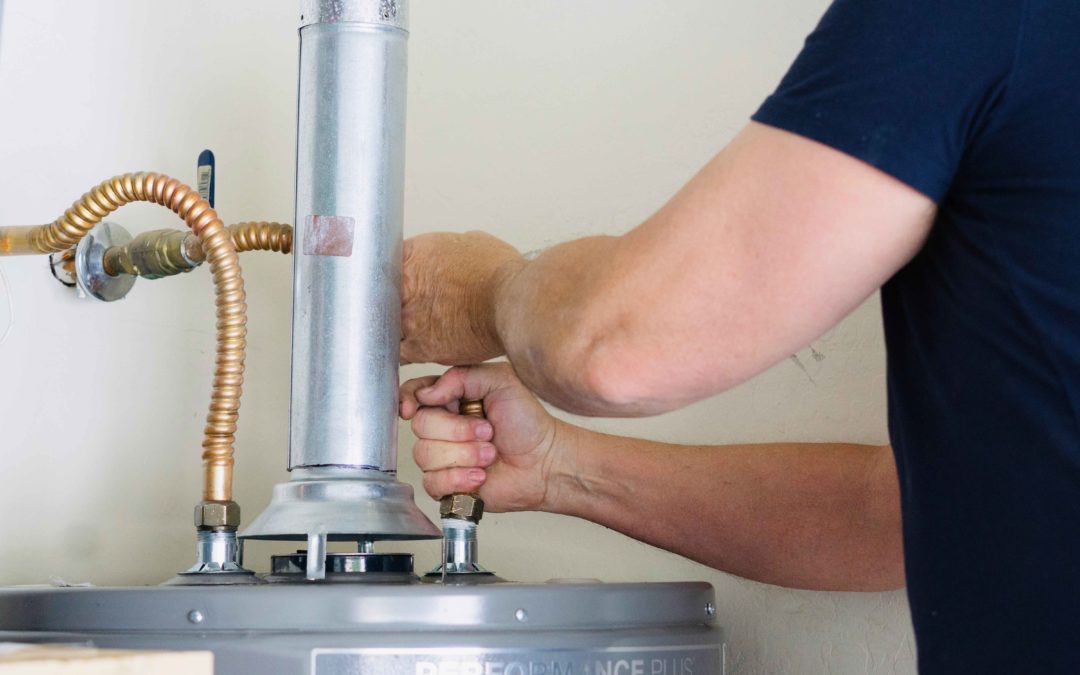A professional Charleston plumber on the job ensures a seamless and efficient process regarding water heater installation. Water heaters are essential for daily comfort, providing hot water for showers, cleaning, and various household tasks. However, installing a new water heater involves more than just plugging in a new unit; it requires a deep understanding of plumbing systems, safety protocols, materials, and local building codes.
Whether upgrading to a more energy-efficient model or replacing an old, malfunctioning unit, knowing what to expect can help you prepare for the installation. This article outlines the steps involved in the replacement process and highlights the benefits of hiring a professional. By the end of this guide, you’ll have a comprehensive understanding of the entire water heater installation process, from the initial consultation to post-installation tips, ensuring you can make informed decisions and maintain your new system effectively.
Initial Consultation and Assessment
The first step in the water heater installation process is the initial consultation. During this visit, your Charleston plumber will assess your current water heater and plumbing system. This evaluation includes checking the type, size, and age of your existing water heater installed unit and inspecting the floor and surrounding plumbing for any issues that could affect the installation.
Assessing the current setup allows the plumber to recommend the best water heater for your needs, whether a gas, electric, or tankless model. The plumbers will also provide an estimate of the installation costs and discuss any necessary upgrades to replace your plumbing system.
Choosing the Right Water Heater
Selecting the right water heater is crucial for ensuring long-term efficiency and performance. Several factors come into play, including the size of the tank, the type of fuel (gas or electricity), energy efficiency ratings, and your household’s hot water needs.
Your Charleston plumber will help you navigate these various heat part options and recommend a water heater that fits your budget and requirements. Tankless water heaters are popular due to their energy efficiency and endless hot water supply. However, traditional tank water heaters might be more suitable for larger households with high hot water and power demands.
Preparing for the Installation
Before the installation begins, the plumber will prepare the site by shutting off the water, power, and gas supply, draining the leak or old tank, and disconnecting existing gas or electric lines. Safety is a top priority, so the plumber must follow all local codes and regulations.
Additionally, the installation area must be clear of obstacles to provide ample space for installing the new water heater. This preparation helps prevent potential damage or flooding to your home and ensures a smooth installation process.
The Installation Process
The actual installation process involves several key steps. First, the plumber will place and secure the new water heater in the designated area. For gas water heaters, this includes connecting the gas line and ensuring the vent pipe is installed correctly to vent exhaust gases safely.
The plumber will connect electrical wires and fittings for electric water heaters. The correct discharge pipe and drain valve will be installed to handle overflow and drainage needs. The plumber will also connect the hot and cold-water lines, ensuring tight fittings and leak-free pipes.
Testing and Quality Assurance
Once the water heater is installed, the plumber will thoroughly test the replacement unit to ensure it functions correctly, including checking all connections, verifying that the gas or electricity supply is stable, and adjusting the temperature settings to your preference.
The plumber will also check for leaks or issues with the discharge pipe, valve, and drain valve. This testing phase ensures that your new water heater operates efficiently and safely.
Post-Installation Tips
After the installation, your Charleston plumber will provide maintenance tips to keep your new water heater running smoothly. Regular maintenance includes:
- Flushing the tank to remove sediment buildup.
- Checking the anode rod.
- Inspecting the gas or electrical connections for any signs of corrosion or wear.
Common plumbing issues, such as strange noises or inconsistent water temperatures, can often be resolved with simple troubleshooting. Your plumber will offer guidance on how to address these problems and when to call for professional help.
Benefits of Professional Installation
Hiring a professional plumber for your water heater installation offers less cost and numerous long-term benefits. A licensed plumber ensures that the installation is correct and safe, reducing the risk of future issues. This professional expertise can save you money by preventing costly repairs and extending the lifespan of your water heater.
Moreover, professional installation often includes warranties on the labor, materials, and water heater, providing peace of mind and protection against unexpected problems. A properly installed water heater operates more efficiently, helping you save on energy costs and ensuring a consistent hot water supply.
Environmental Considerations
When installing a new water heater, it’s essential to consider the environmental impact. Modern water heaters, whether electric or propane, are designed to be more energy-efficient, reducing the overall consumption of resources. This efficiency benefits the environment and helps homeowners save money on energy bills. Your Charleston plumber can provide information on eco-friendly options, including models with high energy efficiency ratings.
Additionally, professional installation ensures the water heater is set up to maximize efficiency. Proper installation of the relief valve, correct venting for propane heaters, and the wiring, as well as ensuring that all pipes and fittings are correctly sealed, contribute to the system’s overall efficiency. By choosing environmentally friendly options and professional installation, you contribute to a greener planet while enjoying the benefits of reduced utility costs.
Upgrading to Modern Technology
Upgrading to a modern water heater is not just about replacing an old tank; it’s about embracing the latest technology to enhance your home’s comfort and efficiency. Modern water heaters have advanced features such as digital temperature controls, improved insulation, and technology that allows you to monitor and adjust settings remotely. These features help your tank maintain consistent heat levels and can prevent issues such as leaks by alerting you to potential problems early on.
One significant advantage of modern water heaters is their integration with home automation systems. For instance, you can schedule heating times to coincide with periods of high demand, ensuring you always have hot water when needed while reducing energy consumption during off-peak hours. These technological advancements not only improve the functionality of your plumbing system but also contribute to long-term cost savings by optimizing energy use and reducing wear and tear on the unit.
Depend on Smoak’s Comfort Control
Understanding what to expect when your Charleston plumber installs a new water heater can help you prepare for the process and appreciate the benefits of professional installation. From the initial consultation to post-installation maintenance inspections, each step is designed to ensure your new water heater operates efficiently and safely.
Hiring a professional plumber guarantees a high-quality installation and provides long-term benefits such as enhanced safety, improved efficiency, and reduced maintenance costs. You can enjoy a reliable and consistent hot water supply for years with expert guidance and support. For reliable water heater installation and expert plumbing services, contact Smoak’s Comfort Control today and enjoy the peace of mind that comes with professional service.
Don’t wait until your old unit fails—contact us today and upgrade to a modern, efficient water heater with the help of our skilled Charleston plumbers.

